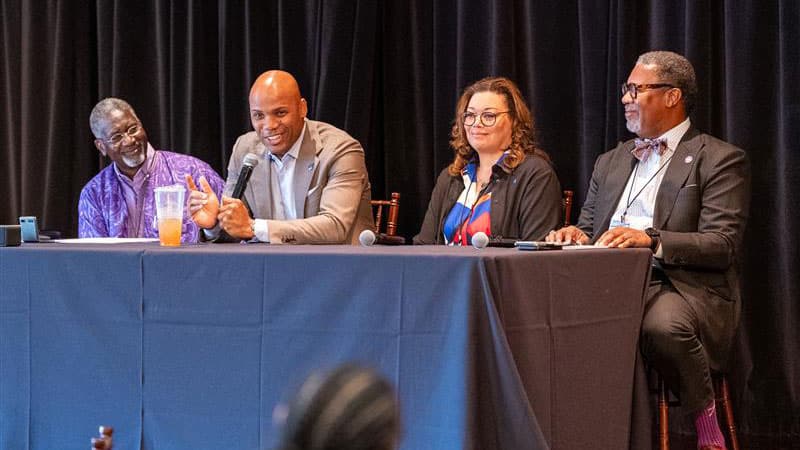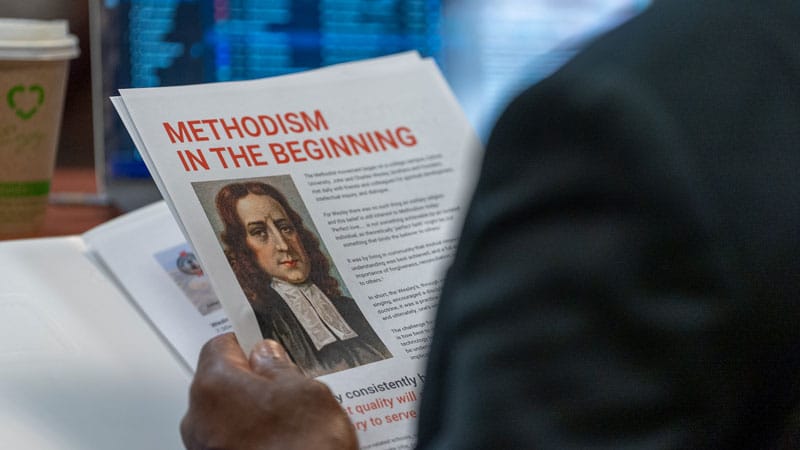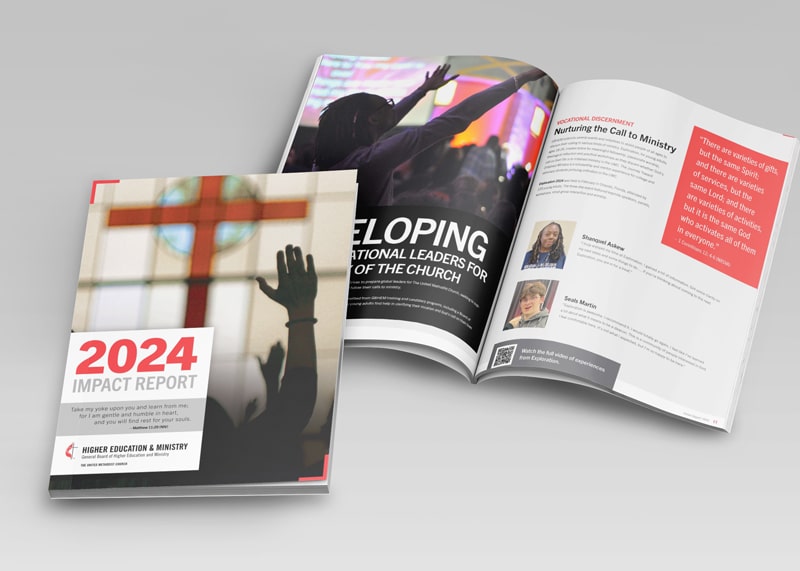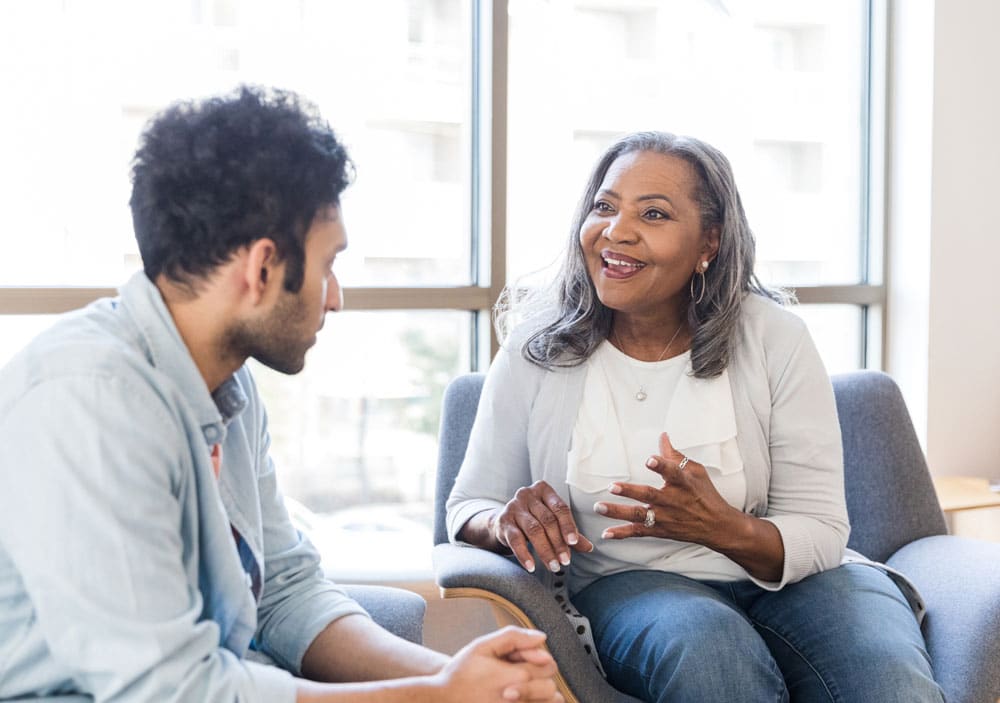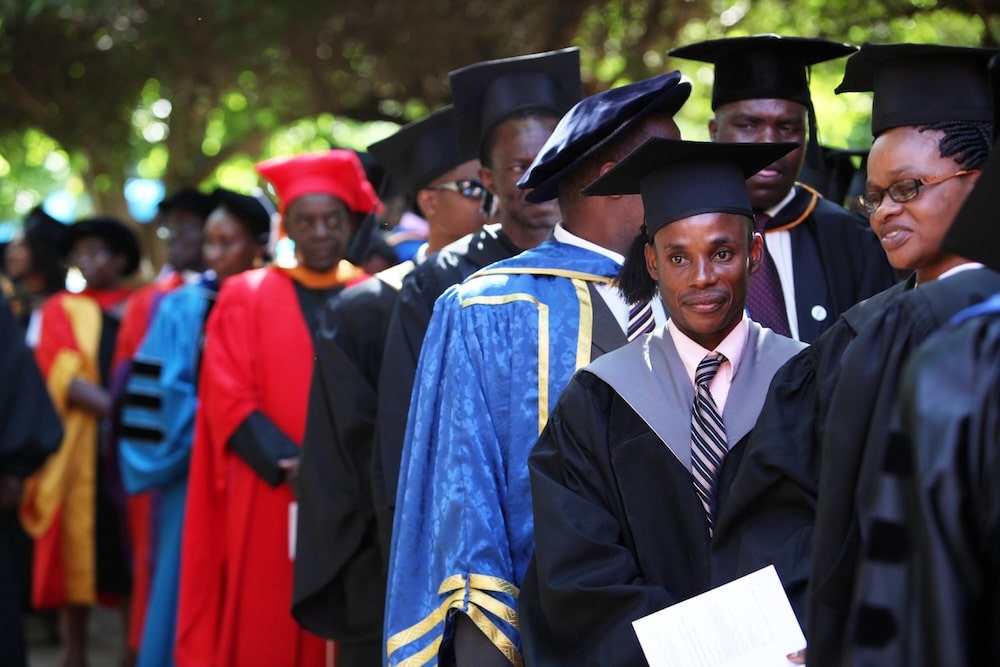Women of Color Scholars’ Series: Lee Works for Trauma-Informed Pastoral Counseling
By Jessica Love
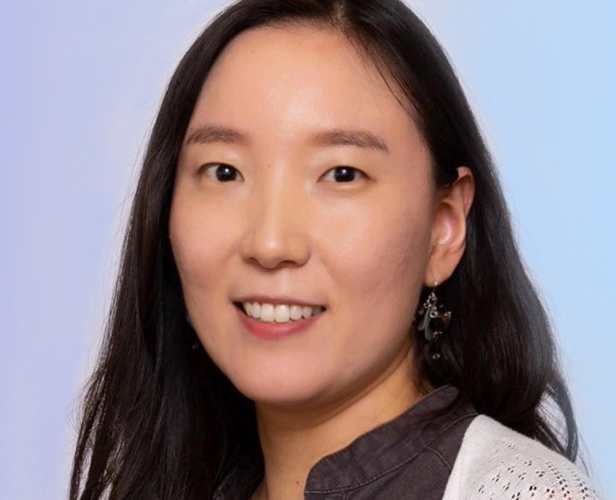
Growing up in Seoul, South Korea, Hee Jin Lee’s love for music drew her to the church.
“I loved music and singing songs,” she said. “I was raised in a non-Christian family, and one of my friends asked, ‘Hee Jin, do you want to join a choir; why don’t you go to the church with me?’ My answer was definitely yes!”
Lee dove deeper into music and the Church to escape the stressors of family life. Church and God’s word became a “safe space” for her.
“In the crisis, I needed to run away from this place of fear, and my flight or fight reaction led me to church more. So, every night I prayed for myself and my family,” said Lee. “I read the Bible to overcome the painful situation. Very gratefully, my church provided many gifts and such as food, friends and community and spirituality, to the small, weak and anxious child I was.”
Lee said that experience led her to discover her call to ministry.
“I experienced my calling through God’s love… So, I decided to be a seminarian to respond to God’s calling,” she explained.
Lee is now an Angella P. Current-Felder Women of Color (WOC) Scholar at Emory University’s Candler School of Theology. There, she is using her life experiences to develop a theology of pastoral counseling to help others heal from the traumas of violence.
The Angella P. Current-Felder Women of Color (WOC) Scholars program is administered by the General Board of Higher Education and Ministry (GBHEM), and is designed to provide financial, intellectual and personal support to United Methodist women of color pursuing doctorates in religious studies at seminaries and universities across the U.S.
Quest to Explore Suffering and Structures of Violence
Lee’s personal experience set her on a quest to better understand how churches and religious communities respond to human suffering and violence.
“I had been kind of a seeker to answer questions about suffering, such as intrapsychic and interpersonal issues and structure and even global violence, and questions about the realistic cares for them,” Lee explained.
Yet, Lee’s questions were not always embraced. While God’s love led her to ministry, she often felt alienated in theology and not fully welcomed in Korean Christianity as the child of a non-Christian, divorced and low-income family.
“I could not freely share my family background with other Christians in the churches and the school,” Lee recounted.
Later, after taking courses in feminist theology and pastoral counseling, Lee felt affirmed in her voice and theological perspective about the healing process as an Asian Christian woman.
Lee’s experience at the Pacific, Asian and North American Asian Women in Theology and Ministry (PANAAWTM) annual conference was a definitive moment in her educational journey. During a presentation at the conference, she discovered a critical piece of information in her search for answers about violence and trauma.
“The topic was ‘Dangerous Memory: Theologies in Times of War and Healing.’ And the topic hit me in my head…because I recognized my chronic anxiety was different from other residents in my clinical pastoral education group,” Lee recalled.
This helped Lee realize that she needed to develop her research to address an unexplored area in pastoral care counseling.
“I was curious about what makes us different from other ethnic groups, and how social, cultural and historical locations impact current mental health,” said Lee.
Lee is now a candidate for a Doctor of Theology degree. Her research explores the experiences of people who were traumatized as children by their family or community, while examining transgenerational and transpacific trauma.
“I want to deeply examine the connection between personal mental health issues and collective experiences, especially trauma and violence in their historical context and their political and global relationships,” said Lee.
She believes this is the critical step to developing pastoral care and theology for people living within multiple oppressive structures. She also acknowledges that her greatest challenge has been dismantling her own conscious and unconscious structural violence.
“In the U.S., as an Asian woman, the unending violence has been continued, such as externally,” Lee added. “The experiences of exclusiveness, and internally—the thought that I am not good enough in the Eurocentric academic field.”
Continuously affirming herself has helped her accept her experiences and dismantle structural violence through her work. Another important element in helping Lee overcome this challenge has been the WOC program.
WOC as a Safe Space and Critical Anchor
“The WOC scholars program provides a safe space and critical anchor for me,” Lee said. “Although I face many struggles, I have the core to hold me in my leadership journey, which fuels me to keep working.”
Lee said the WOC annual meetings gave her the confidence in her work she needed.
“Until then, I did not think that I could show my work in front of other scholars,” she said. “But since then, amazingly, I started to present my work at other conferences. During that gathering, I saw the hope that my work can be visible, and it helped me to develop my professional identities and studies as an Asian female theologian.”
Lee first felt the importance of the program last year during her interview for the scholarship program.
“I shared my vulnerability with self-doubt in my work,” she recalled. “I was very emotional at the time, but my mentors shared their heart and encouragement by affirming that my experience was not my own. It was powerful because it was kind of message that ‘We are with you.’”
Lee feels that the WOC program is important because it shows that the individual journey can be a communal one. The program is special to her because it means that her denomination is supporting her as a scholar.
“It means that my denomination is literally walking with me and empowering WOC scholars to be influential voices in the religious field,” she said. “So, I believe this scholarship reconstructs fruitful and diverse Christian perspectives in the field of religion. That means a lot for me.”
Lee is now in the process of becoming an elder for the North Georgia Annual Conference and hopes to become a licensed counselor.
“I want to use my experiences,” she said. “I want to contribute to the emotional, spiritual and intellectual roles of individuals, families and communities as I experienced in my entire leadership journey.”
You can help theologians like Lee by supporting the WOC scholars’ program. To give directly to the program, visit: www.gbhem.org/donate4students.
About GBHEM: The General Board of Higher Education and Ministry embraces the ministry of learning and leadership formation in The United Methodist Church and Wesleyan tradition; serving Christians around the world who are shaped by a process of intellectual engagement, spiritual and character formation, and leadership development. We cultivate a dynamic culture of call and vocational discernment that encourages lay and clergy leaders to discover, claim and flourish in God’s ministry and mission for the Church, the academy and the world. Follow us on Twitter and Facebook: @GBHEM.
Related Posts
DETROIT — Leaders from United Methodist-related institutions, including seminaries and Historically Black Colleges and Universities called for justice, historical reckoning, and a renewed commitment to equity in higher education and society during a Juneteenth panel discussion.
In a joint meeting with the North American Association of Methodist Schools, Colleges and Universities (NAAMSCU) on June 19, the University Senate of The United Methodist Church reaffirmed and deepened its connection with UM-related educational institutions focusing on their United Methodist identity, academic excellence and social justice in higher education.
The General Board of Higher Education and Ministry 2024 Impact Report offers a detailed look at a year shaped by transition, renewed alignment and a deepened commitment to developing transformational leaders for the church and the world.
